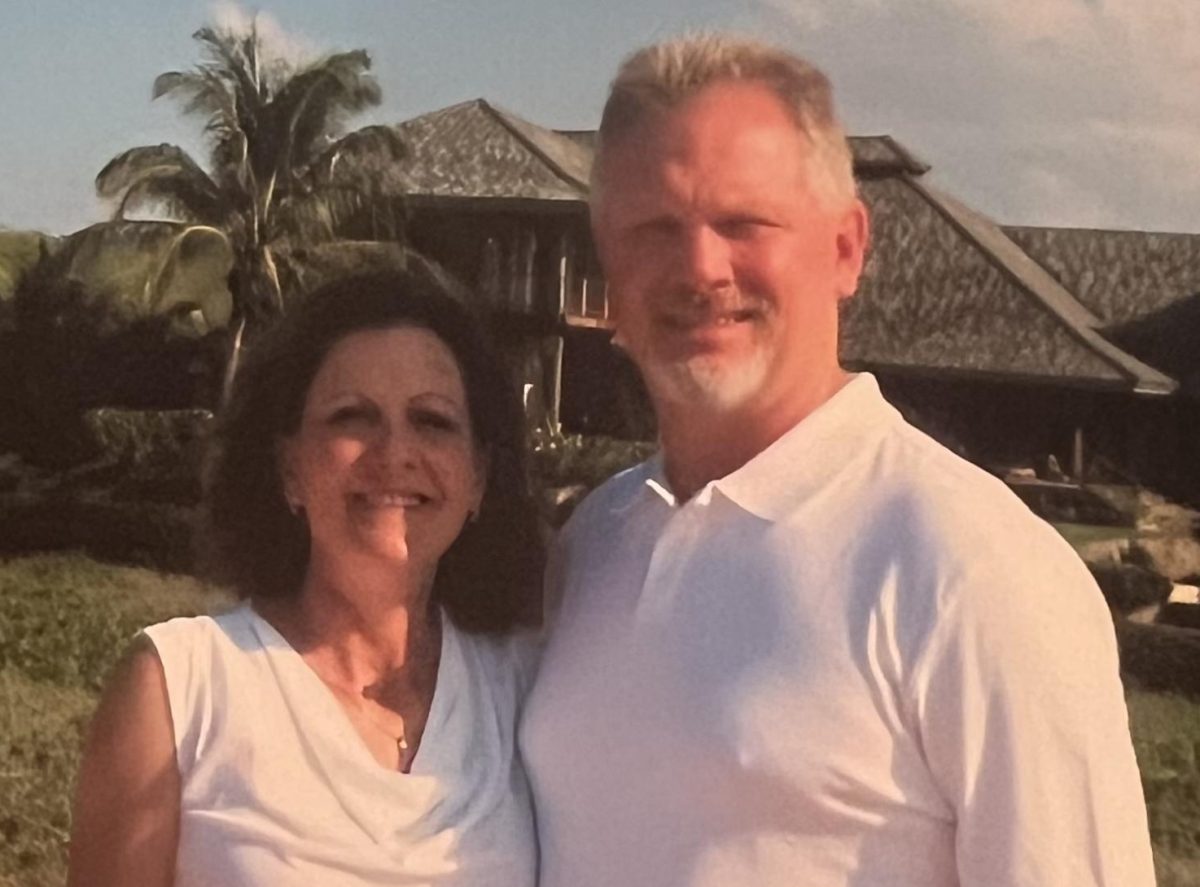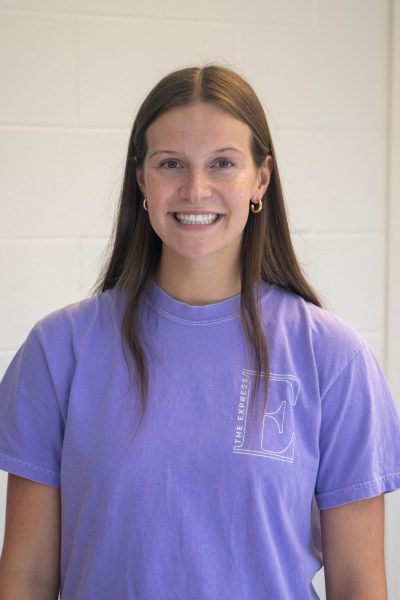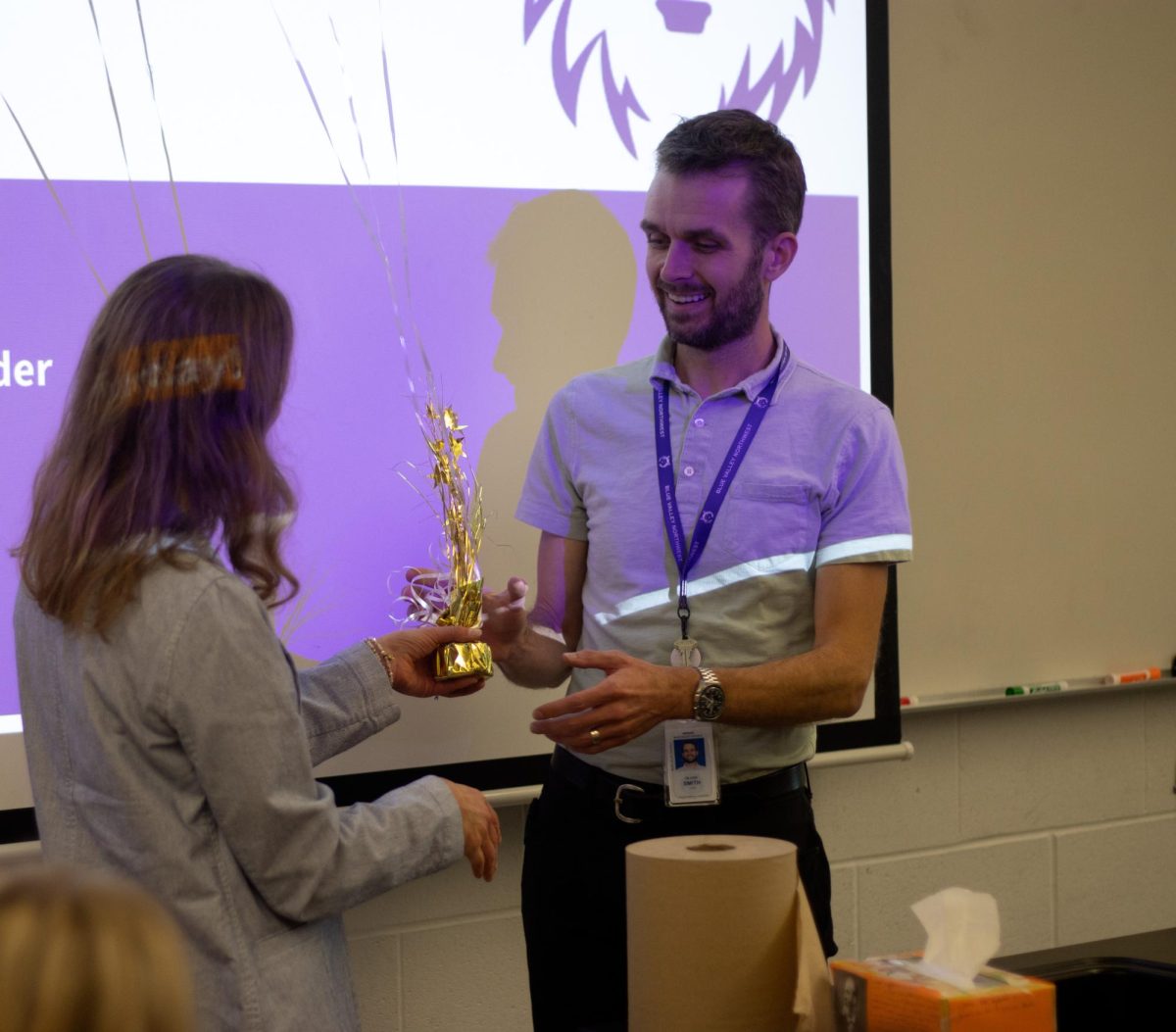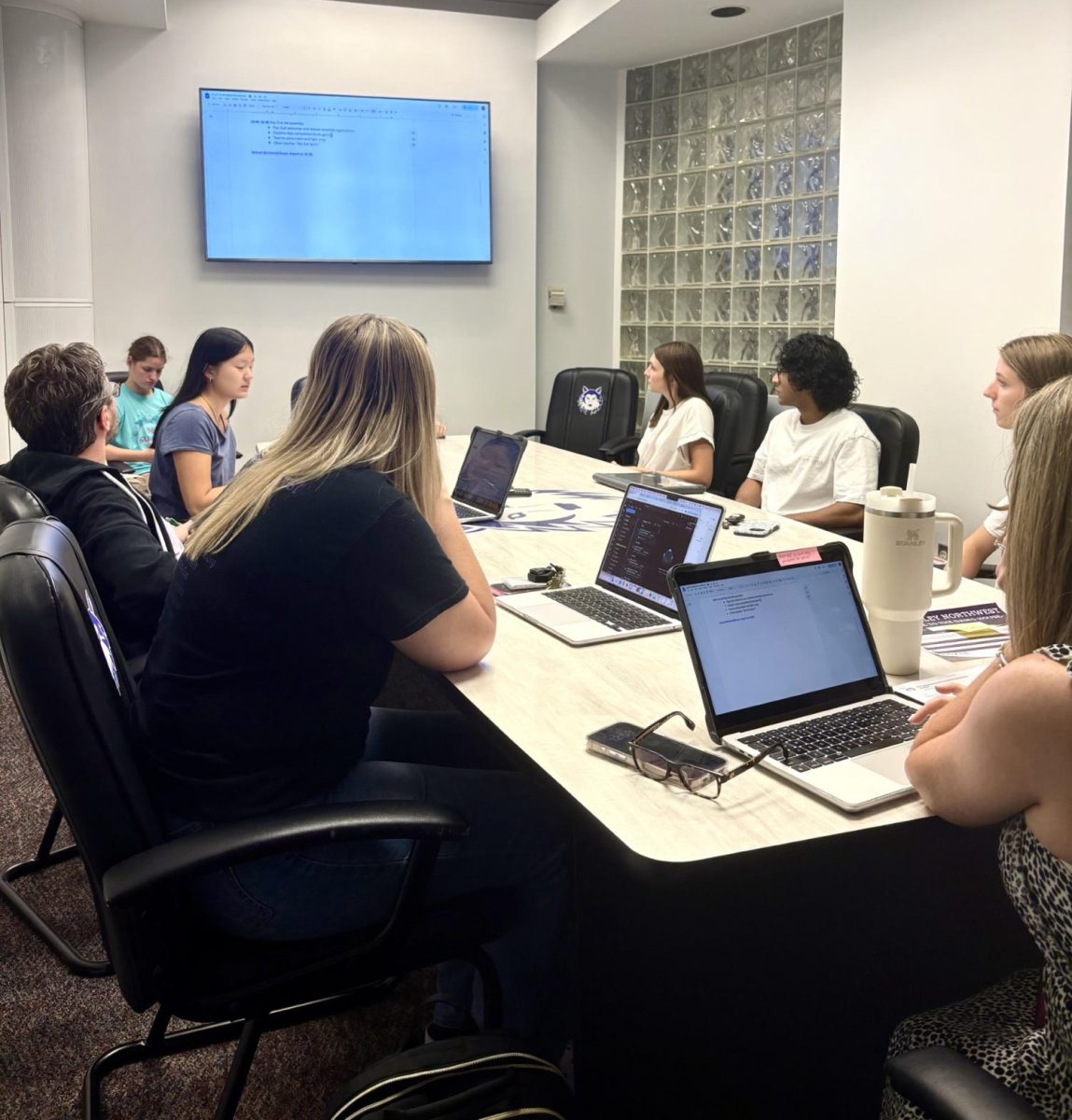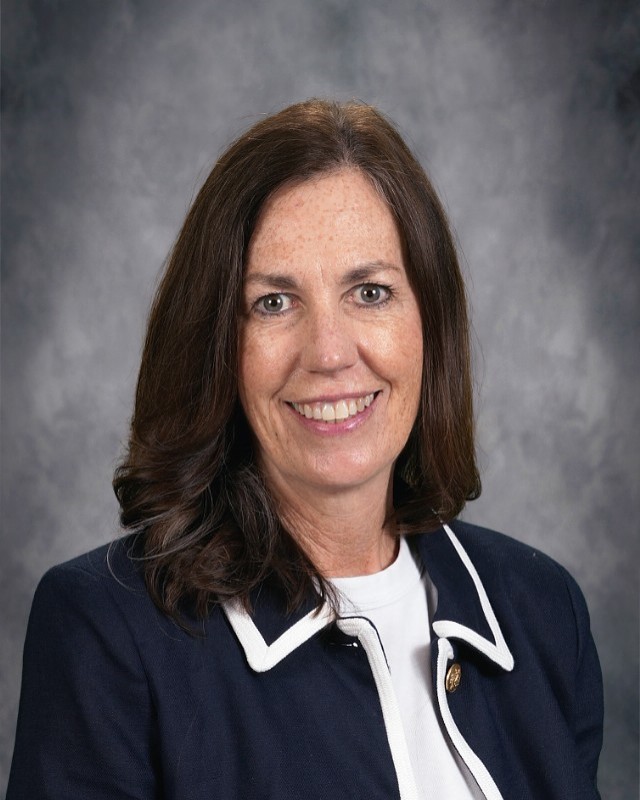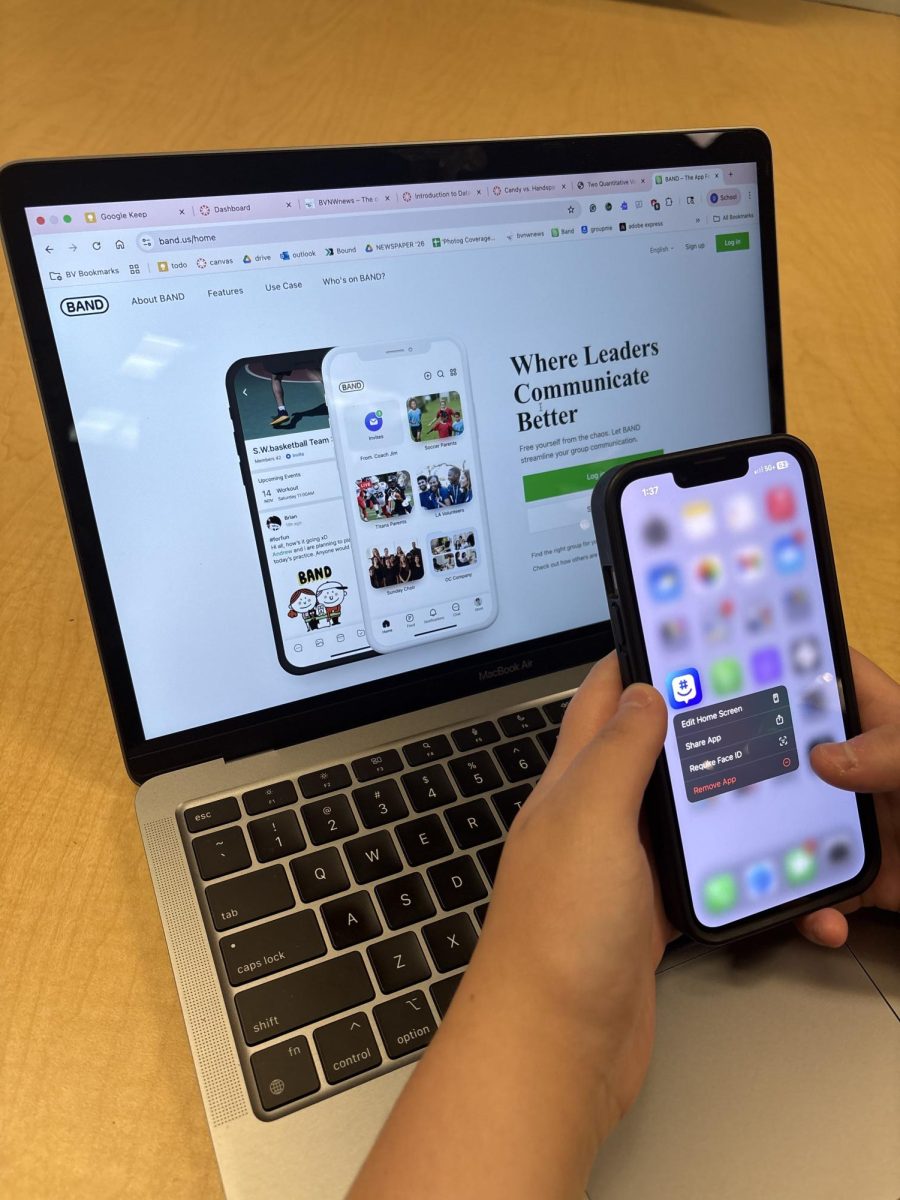Former head football coach and athletic director Steve Harms was a crucial part of the development of BVNW, according to the school’s first principal, Russell Kokoruda.
“[Northwest] is a solid place for young people,” Kokoruda said. “I think Steve was a real important cornerstone of that whole ‘Northwest feel.’”
Kokoruda said that the school was starting from scratch, meaning they had to create their own culture. He said Harms helped the school through the first semester as everyone adapted to the new school.
“Steve was really instrumental in creating kind of a school spirit,” Kokoruda said. “[He] was an active participant in pep assemblies and he just created a good spirit.”
Former BVNW football and wrestling coach Tim Serbousek said if the school was Mount Rushmore, Harms would be its George Washington.
“The best way I can probably describe Steve [is] the godfather of Northwest,” Serbousek said. “The relationships he built with the kids and the staff were legendary. He was just our leader.”
Harms died in his home from prostate cancer, which he had been fighting for more than five years, on Sep. 21, 2023.
According to Kokoruda, part of the legacy Harms left behind was teaching kids how to be human beings, whether they were his players or his students.
“He wanted them to see what it was like to be a good father, to listen to kids when they were struggling and to be supportive of kids, not just as football players,” Kokoruda said.
Similar to this, Harms’ son Ryan Harms said his father would have done anything for a student or player.
“When he started, he was the youngest 6A high school football coach ever hired because he was less than 30 [years old],” Ryan said. “Some of [his] players are in their mid-fifties now [and] have been texting me saying that in Kansas City, Kan., he offered them to stay at our house, he paid for their lunch money [and] just did things that I never knew about.”
Ryan said his father changed many students’ lives, whether it be in the classroom, on the field or elsewhere. He said this impact was best shown after they made a social media post saying Harms’ cancer was getting worse.
“In the process of two to three days, I think we counted he received almost 300 pictures, video messages [and] text messages from players who played for him [from] the 80s to the 2000s,” Ryan said.
According to Ryan, these messages told stories about football, the classroom, bullying and just how Harms changed and impacted their lives.
Football coach and physical education teacher John Reichart was on the football coaching staff with Harms when the school opened. He said one of the best ways to describe Harms was as a people person.
“He cared about his football players, he cared about his coaches, he cared about their families [and] he cared about the students in general,” Reichart said. “He really knew a lot about everybody and cared about what was going on in their lives.”
One thing Ryan said he experienced from a young age was how everybody at the school knew and respected his father.
“Every custodian, security guard and lunch lady knew dad by name [and] looked up to him,” Ryan said.
Reichart said the administration in the school’s early years emphasized the importance of students getting involved. He said Harms was really proud of the support they had toward involvement at the school.
“That’s one thing I think he was really proud of,” Reichart said. “We supported everybody. It wasn’t just a football school or a basketball school or a music school. It was an everybody school.”
In respect to his personal life, Kokoruda said Harms’ ability to take every part of his life and be successful in them all was unique.
“He was approachable, he was friendly and he was really a dedicated family guy,” Kokoruda said. “He was a great combination of being a very professional educator, but also very personable with high school students.”
In addition to this, Ryan said between all of the people he played with, went to college with and worked with, he never heard anything negative about his father.
“In my 38 years, I don’t think I’ve ever heard anyone speak poorly about my dad,” Ryan said. “How well-respected dad was in the high school football community has changed my life. I would say it’s changed our family’s lives and it’s just cool to see that legacy live on.”
Similarly, Kokoruda said Harms was an all-around solid person. He said Harms was a positive person to be around who made an impact on a lot of people through his teaching and coaching.
“We all have weaknesses, and I’m sure Steve had one, but I never saw it,” Kokoruda said. “Frankly, [he was] the kind of guy that I would want my kids to have as a teacher and a coach, and he set the bar high for other coaches and programs at Northwest.”
In addition to setting the bar high, Ryan said his father was proud of everything surrounding Northwest.
“He was so proud to be in the Hall of Fame, so proud of everything Northwest,” Ryan said. “He was just so passionate.”
According to Ryan, Blue Valley Northwest was Harms’ fourth child.
“[From] when he opened the school coaching, to [being] athletic director, to being away from Northwest, he still checked every sports score, read every social media post and wanted to hear and be a part of everything Northwest,” Ryan said.
In this spirit, Ryan said he will never forget watching the 2021 football state championship with his father.
“Even though dad wasn’t on the sideline, he was so happy to see the school get to that point in his lifetime,” Ryan said.
While football and the school were important to Harms, Kokoruda said they were not the biggest priority in his life.
“I really think his number one priority was being first of all a solid person, and then secondly, a good dad and a good husband,” Kokoruda said.
Serbousek said Harms set a good example of a balanced life for people.
“He was an expert at balancing the family and athletic portions of [his] life,” Serbousek said. “I’ve seen it where a sport will just consume a coach and they don’t have the time for even dealing with their family. Steve was extremely conscious of all of that.”
Reichart said the coaches would always go out after football games, but Harms would never stay very long, leaving to spend time with his family.
“He wanted to get [home] early enough that he could talk to his wife before she went to bed and see the kids a little bit, especially when they were younger,” Reichart said. “He just said ‘Nope, I have to spend time with family.’”
However, Serbousek said while Harms valued his family, he made Northwest football a family as well. He said Harms created this family for both present and past players and their families.
“In the summer camps, he would include everyone’s family,” Serbousek said. “[We would] have a Father’s Day game and a Mom’s Day practice, we would have an alumni practice, we’d just constantly bring the family back together.”
Serbousek said these events would happen every year and were a part of the football program because of Steve.
Despite recognition toward Harms’ success in the BVNW football program, Kokoruda said Harms should not be remembered as solely a football man. He said the people who knew Harms will not remember him like that.
“I don’t think Steve should be thought of as simply a successful football coach. I don’t think that’s what people are going to miss about him,” Kokoruda said. “He just had a positive way of going about doing things that I know I will miss and that I think others will miss [too].”



